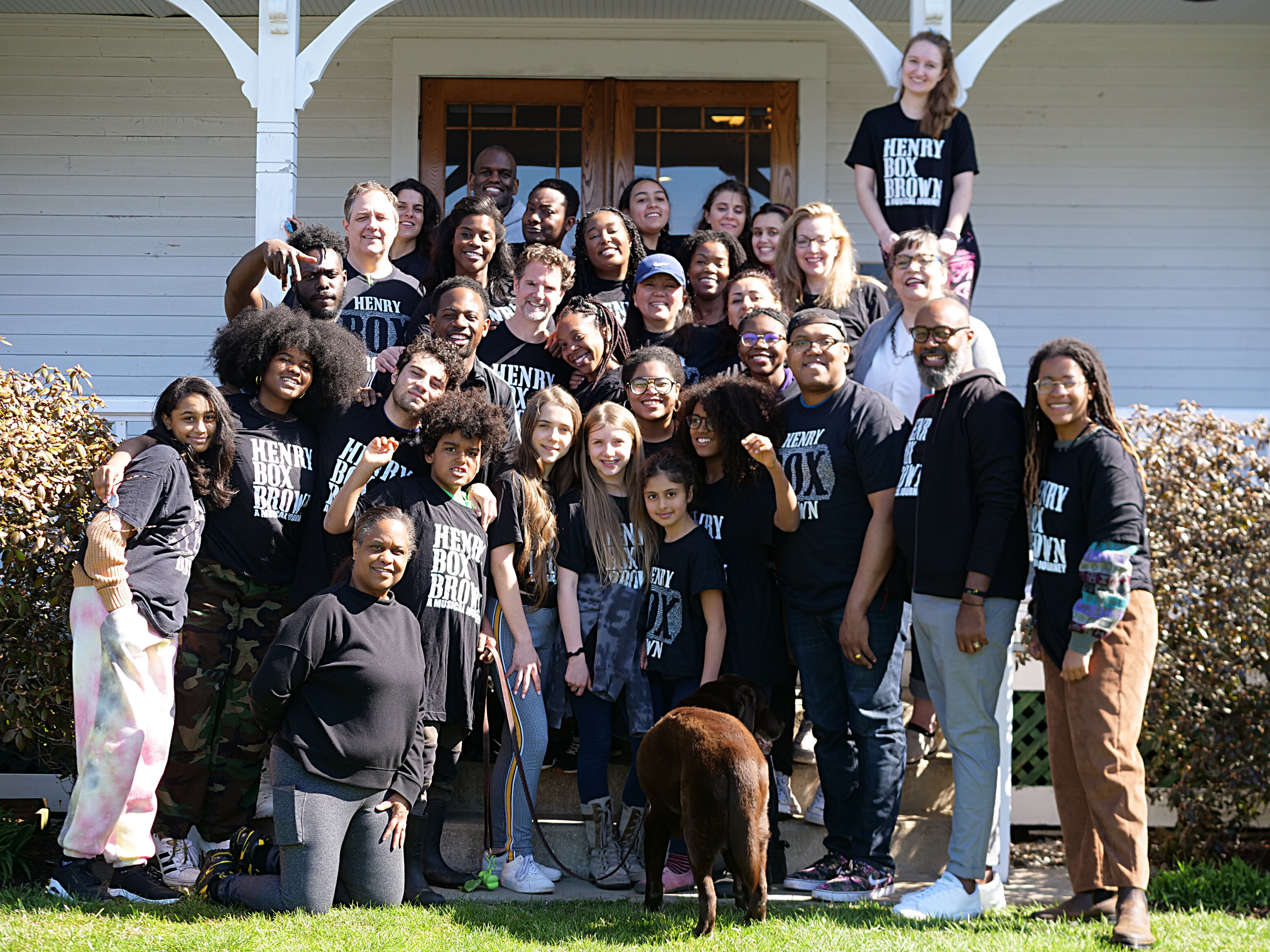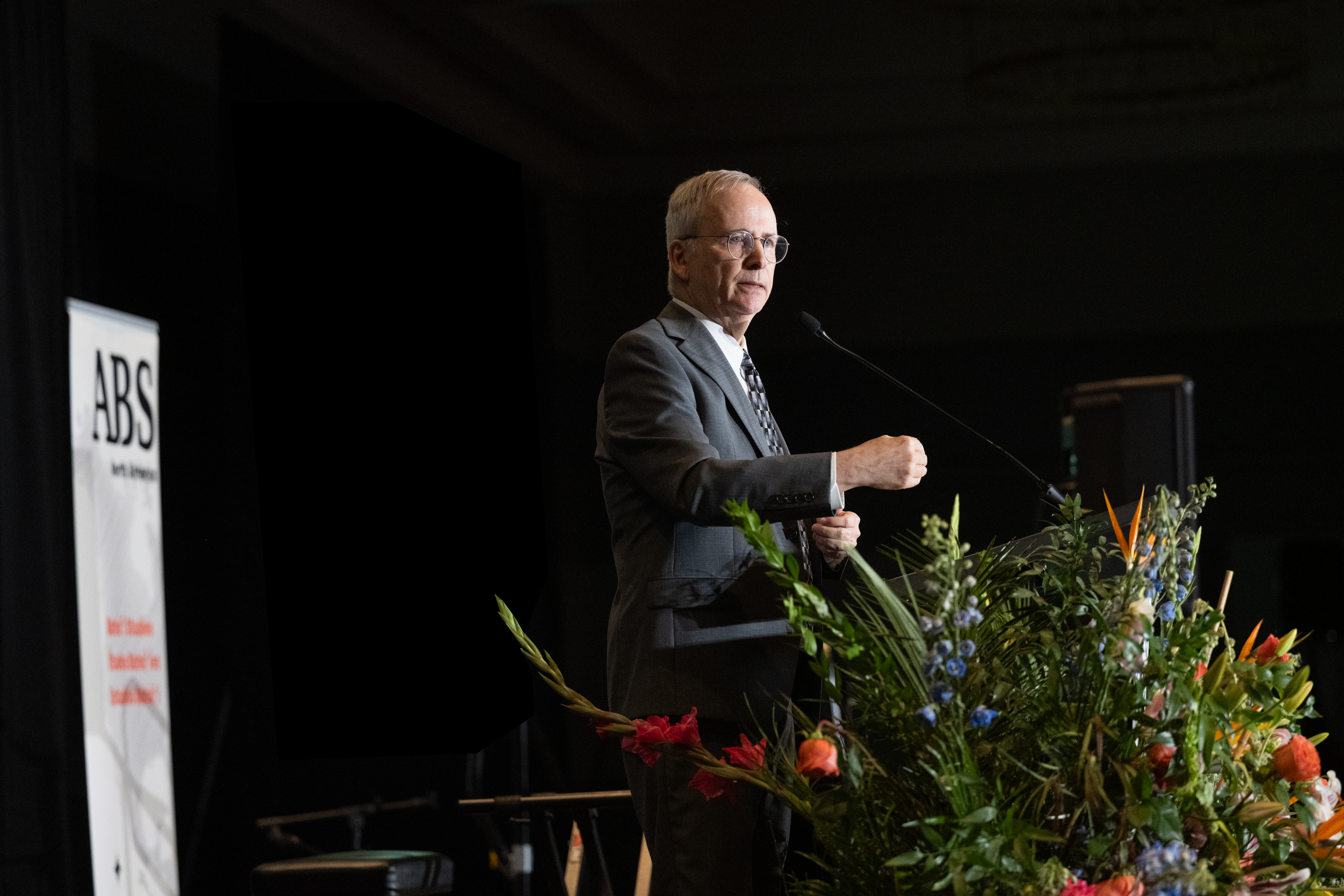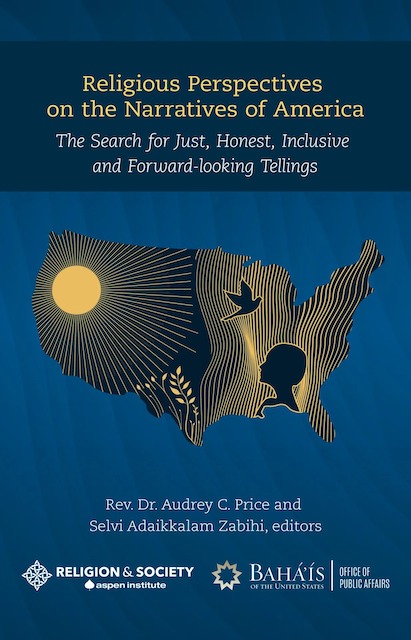
Resilience in face of oppression is central to Baha’i studies event
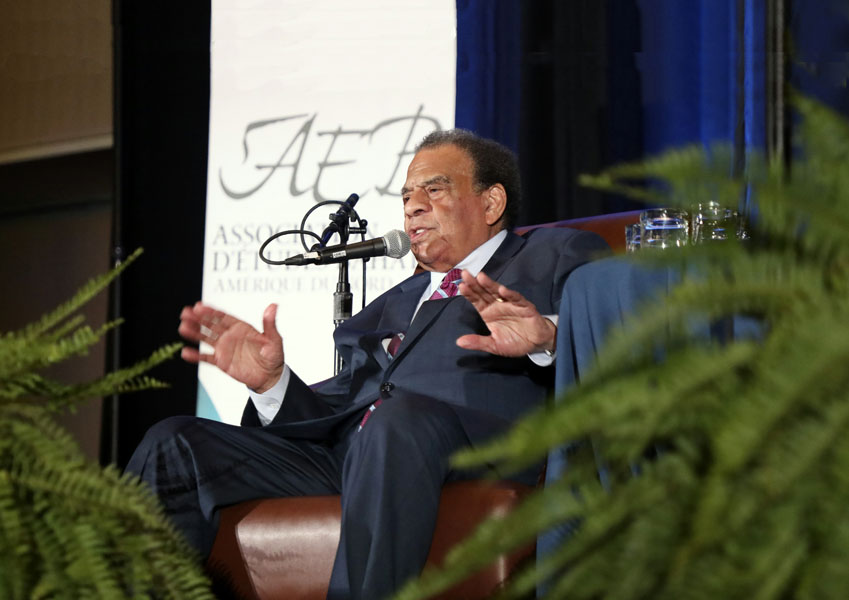
Resilience. In psychology, resilience is the ability to adapt well in the face of tragedy and stress. The Universal House of Justice, global governing council of the Baha’i Faith, uses the more specific term “constructive resilience” to describe a powerful response to long-term systemic oppression that can effect transformation in individuals and society.
Resilience — specifically constructive resilience — was uppermost in hearts and minds as the pursuit of social justice took center stage at the 42nd annual conference of the Association for Baha’i Studies–North America, Aug. 9–12 in Atlanta.
Attendees were moved as Dr. Firaydoun Javaheri, retired member of the House of Justice, described how the Baha’is in Iran are not just surviving but are able to contribute to society despite suffering ongoing persecution.
They listened intently as the Rev. Andrew Young, now 86, related stories from his involvement in the American civil rights movement and his later diplomatic efforts — both demonstrating palpably the power of learning to live and work together.
In a host of other talks, panels, breakouts and study sessions, they gleaned additional facets of the power of constructive resilience to fortify individuals and peoples and ultimately change hearts — nearly all couched within the framework of the resilience of African Americans in the face of horrors ranging from slavery to Jim Crow laws and mass incarceration.
And in a stirring conference-ending performance by the Atlanta Baha’i Choir, they heard the words and felt the spirit of generations of oppressed who have clung to faith, hope and love.
Andrew Young: “Stay calm … get smart”
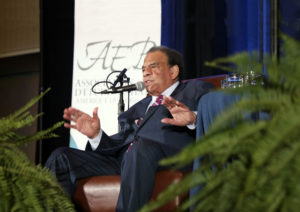
Magnanimity and perseverance were hallmarks of those whose example drove the American civil rights movement of the 1950s and ’60s, said Young.
As students in Nashville, Tennessee, summoned the courage to launch the 1960 lunch counter sit-ins that would end up lasting three months, they “got up at 6 o’clock in the morning and read Gandhi for almost a semester,” he noted.
“The struggle was always an intellectual and spiritual struggle that had been carefully thought out,” he said, and the civil rights movement met success because demonstrators were “militant but not angry” — a lesson Young said he learned from his father at age 4 when the family lived 50 yards from Nazi party headquarters in New Orleans.
“My daddy told me, ‘Look, son, these are sick people. You do not get mad at sick people. You need every bit of intelligence you have to deal with them. … The best thing you can do is stay calm and don’t get mad, get smart.’”
Young projected that lesson to today’s racial environment, noting that “seldom has there been the complexity of sickness that we now find in our nation, and it’s spreading. And we’re a minority, people of color. We can’t win anything violent, almost anything confrontational. We’ve got to be smart.”
Learning to live and work with others is something that served Young well, he said, not only as a top aide to the Rev. Martin Luther King Jr. but later as ambassador to the United Nations in the administration of President Jimmy Carter and as mayor of Atlanta.
Carter “always felt that we could make things a little better if we can understand each other,” said Young. The president sent him to meet with people who were blocking progress, such as PW Botha, enforcer of South Africa’s apartheid system of racial separation.
Young also told of meeting in the 1960s with the head of the chain that built this conference’s hotel. The man had not intended to hire any African Americans, but after meeting with Young and other city leaders he integrated the staff as well as the hotel — a first that helped point the way toward unprecedented prosperity for the city and, three decades later, its winning bid to host the 1996 Summer Olympics.
The United States can make similar strides, he said, but only if “we have a common goal, and that goal I think is the message of your faith: that we are all children of God, one God, and that we have got to learn to submit to the power of the spirit in order to survive here in the flesh.”
Firaydoun Javaheri: “What can I plus divine assistance do?”
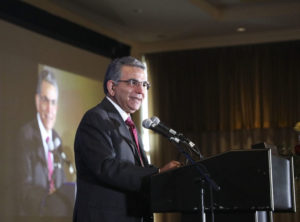
In his own talk, Javaheri painted a picture of an Iranian Baha’i community so full of moral purpose and abiding love for fellow citizens that it has influenced millions of Iranians’ attitudes toward Baha’is and the Faith — even interrogators of those who have been arrested.
Despite the banning of Baha’i institutions and systematic government efforts to weaken it spiritually and economically, the community is distinguished by its “contentment, joy and conviction,” he said.
“What can I plus divine assistance do?” is the prevailing attitude, Javaheri said. These believers are striving to foster an advance in civilization, which they are certain will come about because the Baha’i revelation “rests on an unassailable foundation” and “can’t not succeed.”
“Don’t we pray for these capacities?” Javaheri asked. We’ll “have to work to develop them,” he added. “We’re all oppressed by forces of society … living in a society engulfed in materialism and traditions and assumptions has its own tests and difficulties.”
The example of Iranian Baha’is’ constructive resilience shows a “powerful mode of response coherent with the very aims of the Faith,” he said. It is “non-adversarial, violence-free” and shuns contention. At the same time it is “vigorous in pursuing every legal avenue for correcting injustice.”
Even while remaining “free of resentment and magnanimous,” however, Baha’is recognize that their fellow citizens are also suffering, and they refuse to criticize “those responding to oppression in other ways.”
“Undisturbed by prevailing chaos,” Iran’s Baha’is see “opportunities to promote divine teachings,” he said. As a result the Faith is a “source of inspiration to people who want to build a fair and happy nation.”


